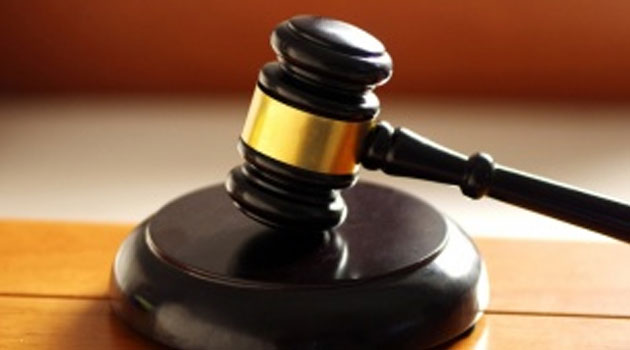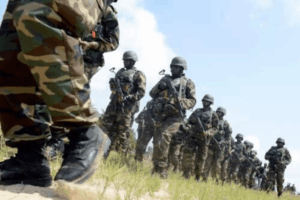
NAIROBI, Kenya, Sep 26 – Two teenagers accused of desecrating Kenya’s national flag during a CAF Champions League match in Nairobi last week were Friday brought before the Milimani Children’s Court.
The incident, captured on video at Nyayo Stadium, showed fans mishandling the flag, with one using it to rub against his private parts. Police later arrested a 17-year-old and a 14-year-old boy in connection with the act.
Detectives initially indicated that the duo would be charged under the National Flag, Emblems and Names Act (Cap 99), which sets strict rules on the treatment of state symbols, including the flag and national anthem.
The offence attracts a fine not exceeding Sh5,000 or imprisonment for up to six months — or both. However, prosecution under this Act requires the written consent of the Attorney-General.
But how do Kenyan courts treat minors in conflict with the law?
1. Age of Criminal Responsibility
Kenya’s Children Act, 2022 establishes the following thresholds:
Under 12 years – Cannot be prosecuted; presumed incapable of committing a crime.
Ages 12–13 – Presumed incapable (doli incapax) unless prosecution proves the child understood the nature and wrongfulness of their act.
Ages 14–17 – Generally deemed criminally responsible, but subject to child-justice safeguards.
The 14- and 17-year-olds at Milimani fall within the bracket where charges may be sustained.
2. Special Protections in Court
Minors are not treated the same as adults. The law emphasizes correction over punishment:
Children’s Courts – All proceedings involving minors are handled in specialized courts, in private, to protect their identity.
Privacy – Publishing names, photos, or details that could identify a child suspect is prohibited, with penalties for breaches.
Legal Representation – Minors are entitled to state-funded lawyers (mandatory for those under 16), alongside parental or guardian presence.
Best Interests Principle – Courts must apply the constitutional principle of acting in the best interest of the child.
3. Detention Rules
Children must be detained separately from adults, in facilities suited to their age.
Detention is a last resort, used only if no alternative exists.
Alternatives include release to guardians, diversion programs, counselling, or community service.
4. Rights of Child Offenders
Children accused of crimes have guaranteed rights:
Privacy during arrest, trial, and detention.
Legal representation at state expense if under 16 or unable to afford counsel.
Fair trial rights, including presumption of innocence and presence of a parent/guardian.
5. Diversion and Rehabilitation
Kenya’s child justice system prioritizes rehabilitation over punishment. Options include:
Counselling and guidance.
Community service (capped at 50 hours).
Restorative justice measures (e.g., apologies, restitution).
Placement in educational or correctional programs.
6. Past High-Profile Cases Involving Minors
Moi Girls Fire (2017/2021): A 14-year-old convicted of manslaughter, sentenced to five years.
Kiambu Murder Case (2023): A 16-year-old girl sentenced to 10 years for killing a toddler.
Litein Boys Unrest (2025): Eight students charged with arson and burglary; the court barred publication of their identities.
Bottom Line
Children in conflict with the law are not immune from prosecution in Kenya, but the law requires that their cases be handled with their rights and best interests at the center.
In the Nyayo Stadium case, the Milimani Children’s Court will need to balance accountability for desecration of a national symbol with constitutional obligations to safeguard the rights, dignity, and future of the two teenage suspects.
The Constitution of Kenya (Article 53) and the Children Act, 2022 both affirm that the best interest of the child must guide every decision affecting minors.





